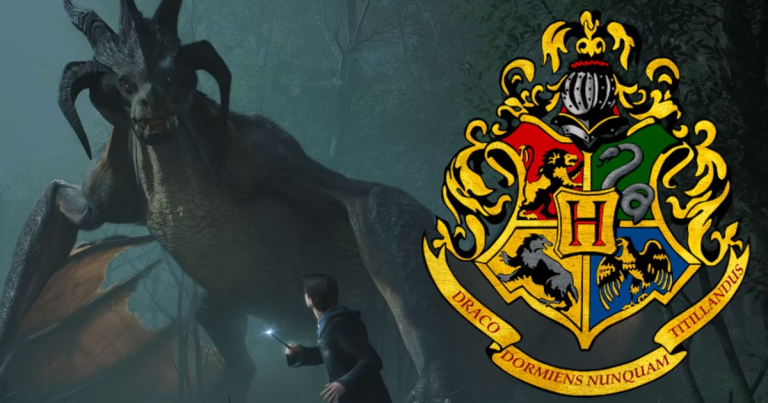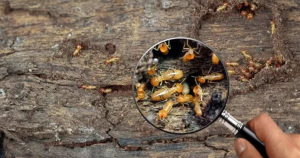The Killing of a Sacred Deer is a psychological thriller directed by Yorgos Lanthimos. Released in 2017, this haunting film explores themes of guilt, punishment, and moral dilemmas. One of the central mysteries in the film is the strange affliction that befalls a family, seemingly as a form of retribution. But what is this mysterious “poison,” and what does it symbolize?
A Brief Overview Of The Film
The story revolves around Dr. Steven Murphy, a successful heart surgeon, his wife Anna, and their two children, Kim and Bob. At the center of the narrative is a young boy named Martin, whose father died during surgery at Steven’s hands. As the plot unfolds, Martin appears to seek revenge by casting a mysterious curse on Steven’s family. This curse manifests in a strange illness that affects Steven’s children, causing them to lose the ability to walk, refuse food, and eventually bleed from their eyes, leading to death unless Steven makes an impossible choice.
What Was The Poison In The Movie?
The term “poison” is never explicitly used in the film, but Martin’s curse operates like one. The family falls victim to a supernatural affliction with symptoms that escalate over time, beginning with paralysis and progressing to starvation, bleeding, and ultimately, death. There is no clear scientific explanation for their condition, which leads many viewers to wonder whether Martin somehow poisoned them or if there was something more mystical at play.
Is There A Literal Poison?
On a surface level, the film does not provide any direct answer. There are no scenes where the family is physically poisoned through food, water, or any other substance. However, the symptoms could be interpreted metaphorically as a “poison of the mind” or a manifestation of guilt and vengeance. This ambiguity is one of the film’s defining traits—it’s a puzzle without a clear solution.
The Role Of Martin
Martin’s character plays a pivotal role in this mystery. He blames Dr. Steven for his father’s death and imposes a sort of karmic punishment on him. Throughout the film, Martin seems calm, almost detached, as he explains that Steven’s family will go through specific stages of illness unless Steven chooses one member of his family to die as an act of sacrifice. This brings us to the Greek mythological inspiration behind the movie.
The Mythological Reference: Iphigenia And Agamemnon
The title of the film refers to an ancient Greek myth, The Sacrifice of Iphigenia, which sheds light on the nature of the poison in the movie. According to the myth, King Agamemnon accidentally kills a sacred deer belonging to the goddess Artemis. To appease her and ensure victory in the Trojan War, Agamemnon is forced to sacrifice his daughter, Iphigenia. This story parallels the situation in the movie, where Dr. Steven must choose which of his family members will die as a form of retribution for his past actions.
The poison in the movie can be seen as the curse of divine punishment—much like in the myth where the family suffers until a sacrifice is made to balance the scales. This thematic connection explains why the “poison” in the film does not need a physical explanation; it is a moral and supernatural consequence rather than a chemical one.
The Poison As Guilt
A key interpretation of the mysterious illness in the film is that it represents guilt. Dr. Steven is responsible for Martin’s father’s death, and while it was not intentional, the burden of this guilt weighs heavily on him. Martin’s affliction could be seen as a metaphorical poison that infects Steven’s life, gradually destroying everything he holds dear unless he confronts his past and makes an impossible choice.
In this sense, the poison is internal rather than external. It’s not something that can be cured with medicine; it’s a psychological and moral toxin that corrodes the family’s bond from the inside out. This adds a layer of complexity to the film, turning it into more than just a simple revenge story—it’s a meditation on the consequences of guilt and the lengths one must go to in order to atone for past sins.
The Supernatural Element
While guilt plays a significant role in the film, there’s also an undeniable supernatural element. The affliction that Martin imposes on Steven’s family does not follow any medical logic, and there’s no rational way to stop it. This leads viewers to wonder whether Martin has some sort of mystical power. Though the film never fully explains how Martin is able to curse the family, his influence is undeniable. The poison in this context could be seen as a dark, supernatural force, operating beyond the realms of human understanding.
In this way, “The Killing of a Sacred Deer” blends psychological horror with the supernatural, creating a sense of dread that builds throughout the film. The poison is a mysterious force that can’t be fought with traditional means, and this helplessness adds to the film’s tension.
Symbolism Of The Poison
The poison in “The Killing of a Sacred Deer” serves as a symbol for multiple themes:
- Revenge: Martin’s actions are driven by a desire for revenge. His father’s death leaves him emotionally “poisoned,” and he transfers this poison to Steven’s family.
- Guilt and Consequence: Dr. Steven’s guilt for the death of Martin’s father festers throughout the film, eventually manifesting as a physical curse on his family. The poison represents the unavoidable consequences of moral wrongdoing.
- Sacrifice: Just like in the myth of Iphigenia, the poison signifies the need for a sacrifice. Until Steven makes a decision, the poison continues to destroy his family.
- Supernatural Punishment: The affliction acts as a form of divine or mystical punishment. It’s something beyond human control, further emphasizing the mythological underpinnings of the story.
Conclusion
In The Killing of a Sacred Deer, the poison is more than just a physical substance—it’s a symbolic force that ties into the film’s larger themes of guilt, retribution, and moral consequence. Whether interpreted as a metaphor for guilt or as a supernatural curse, the poison serves as the central driver of the plot, forcing the characters to confront their darkest fears and make impossible decisions.
The film leaves viewers with more questions than answers, but its ambiguity only adds to its unsettling power. Ultimately, the poison in the film may not have a clear explanation, but its effect on the characters is undeniable—and chilling.






